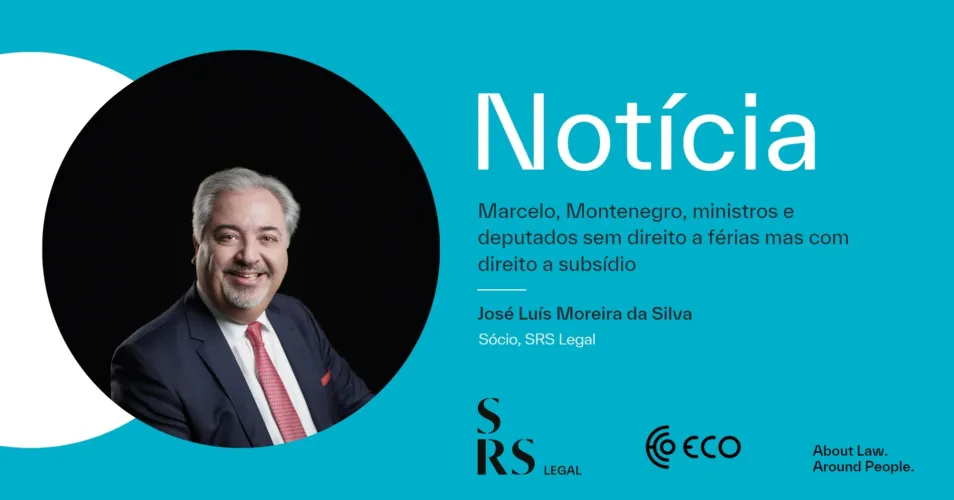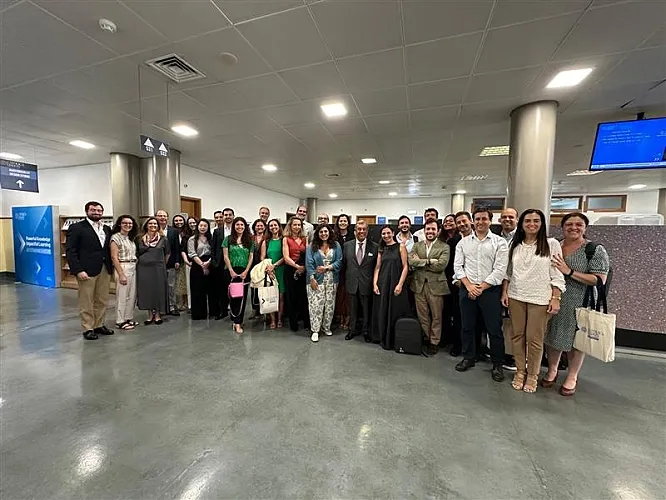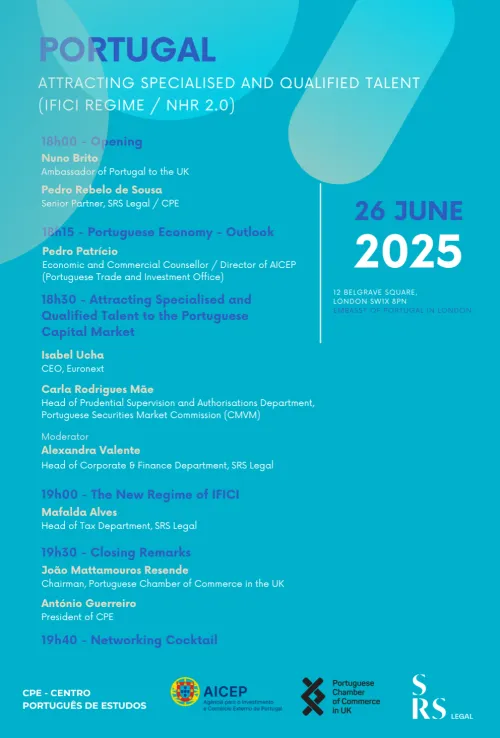Communication
"Marcelo, Montenegro, ministers and MPs not entitled to holidays but entitled to allowances" (with José Luís Moreira da Silva)
"Politicians don't have holidays, they are always active, even when they take a few days off to rest. In this case, they are absent and are replaced under the terms of the Constitution, the Law and the Regulations of the various political bodies," explains José Luís Moreira da Silva, Partner in charge of the Administrative Law and Public Procurement department at SRS Legal.
[...]
Thus, political office holders "rest when they can, that is, when their duties allow them to," says José Luís Moreira da Silva. "Even in the case of MPs, where the Assembly of the Republic's legislative sessions normally end on 15 June and resume on 15 September, the Committees continue to function and the Parliament's Standing Committee meets regularly, and the plenary can also be convened on an exceptional basis." "In other words, politicians are always in office," he concludes.
[...]
Since political office holders are "always in office, they don't receive a holiday allowance", stresses José Luís Moreira da Silva. Even so, the law provides for "the attribution of what is called an extraordinary salary equal to the corresponding monthly salary, in the months of June and November of each year", in accordance with Article 2(2) of Law 4/85 of 9 April, which defines the remuneration status of political office holders, explains the lawyer.
"This means that, unlike the holiday allowance system, it doesn't expire on 1 January each year, nor do politicians enjoy the right to a proportional Christmas allowance. And they only receive it if they are in office in June and November," warns Moreira da Silva.
[...]
Despite this similarity, in the event of leaving office, "the regime is completely different from that of other workers," warns Moreira da Silva. Politicians do not receive unemployment benefits, but are entitled "only to a reintegration allowance of one month for every six months in office" if they have held political office for at least 12 years. "After the age of 55, they are entitled to a monthly allowance for life, which is a percentage of their basic monthly salary - 4 per cent per year, up to a maximum of 80 per cent of that amount," adds the specialist in Administrative Law and Public Procurement.
José Luís Moreira da Silva recalls that "politicians' salaries have been fixed since the time of Cavaco Silva's government (at the end of the 1980s) and are only increased in line with the general civil service updates". "But they have still been reduced by 5 per cent since 2010, when the troika intervened in Portugal, and this measure has never been reversed, whereas it has been reversed for all other public workers," he adds.





